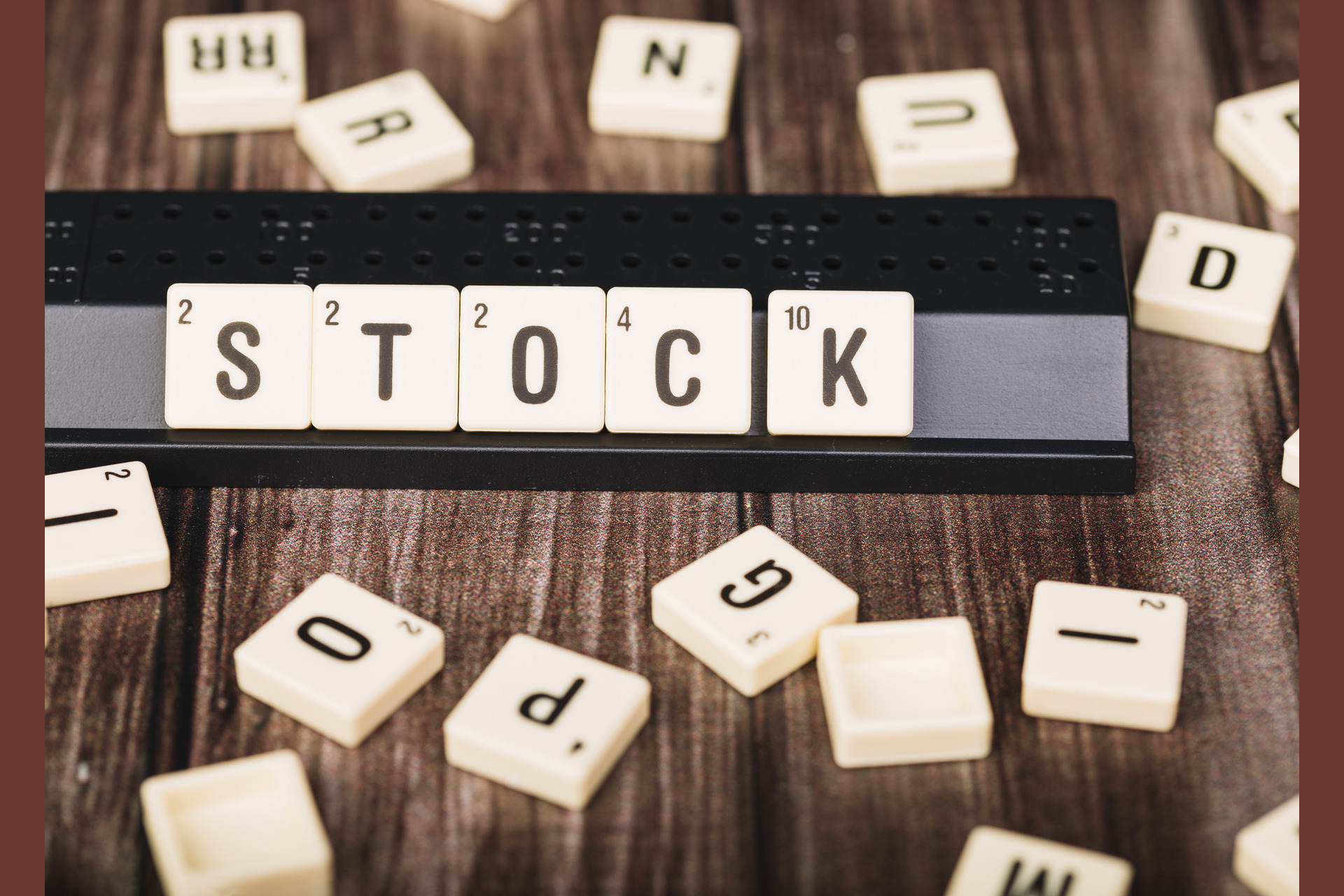What Is a Stock and How Does It Work? (For Absolute Beginners)
If you’ve ever wondered what a stock really is, what drives the stock market, or why stock prices seem to constantly rise and fall, you’re not alone. For many, investing feels mysterious filled with confusing jargon and unpredictable movements. After all, how else would you know anything about investing and putting your money to work? It’s not something we were taught in school or college.
I was lucky enough to start learning about investing early on, driven by my own curiosity and initiative. I bought my first stock as a teenager and taught myself the basics along the way. But not everyone gets the chance to explore these concepts so early. That’s exactly why this article exists: to help you understand the very basics of stocks and how they work—even if you’ve never invested a single rupee.
So if you’re starting from scratch and are eager to learn how investing works, you’re in the right place. Let’s break it all down, starting with the most foundational question of all: What even is a stock?
A Quick History of Stocks (Indian Context)
To really understand what a stock is, we need to rewind time a little.
In the 1600s, European traders set sail to India for spices, silk, and cotton. Huge trade expeditions were expensive, and no single person could fund them alone. So merchants pooled money together and shared profits. That’s where the concept of “shares” or “stocks” was born.
In India, the modern stock market traces its roots back to the 1850s in Mumbai, when brokers would gather under a banyan tree near Horniman Circle to trade shares of cotton and banking companies. Eventually, this grew into the Bombay Stock Exchange (BSE), established in 1875 — Asia’s first stock exchange.
Today, India has two major stock exchanges:
- BSE (Bombay Stock Exchange) – the oldest in Asia.
- NSE (National Stock Exchange) – founded in 1992, now the largest by trading volume.
So yeah — the idea of buying shares has been around in India for over a century. What started under a banyan tree has today evolved into a fully digital ecosystem where millions of Indians buy and sell shares through apps like Zerodha, Groww, or Upstox.
What Even Is a Stock, Really?
When you buy a stock, you’re not just pressing buttons on an app or gambling with money. You’re actually buying a small piece of ownership in a company. Yep — real ownership. Even if it’s just a teeny fraction of a giant company, that stock makes you a part-owner.
This concept allows companies like Reliance Industries (RIL), Tata Motors, Infosys, HDFC Bank, and Asian Paints to exist and grow. These are massive businesses that require thousands of crores to expand and innovate. No single person (not even Mukesh Ambani) can fund everything forever — so companies invite the public to invest.
And that’s where you come in as a shareholder.
IPOs in India
When a company first decides to let the public invest, it goes for an IPO (Initial Public Offering).
For example:
- In 2021, Zomato launched its IPO and raised over ₹9,000 crore. Suddenly, lakhs of ordinary Indians could own a slice of the company they ordered food from.
- Earlier, giants like Infosys (1993), HDFC Bank (1995), and Reliance (1977) all started their journeys in the stock market through IPOs.
So when a private company becomes public, it lists its shares on exchanges like BSE or NSE, and anyone with a Demat account can buy them.
Public vs. Private Companies in India
- Private companies: Shares are not open to the public. Investment happens through direct deals or venture capital. Example: Flipkart before Walmart bought it.
- Public companies: Shares are listed on stock exchanges. Anyone with a Demat account (through brokers like Zerodha, Groww, Angel One, or ICICI Direct) can buy them. Example: Reliance, Infosys, ITC, SBI, HDFC Bank.
So when we talk about the “stock market”, we’re really talking about this giant marketplace where lakhs of people buy and sell ownership in listed companies.
Stock vs. Shares
In India, you’ll often hear both terms used interchangeably:
- “I own stock in Infosys” → means you own a part of the company.
- “I own 50 shares of Infosys” → same thing, just more specific.
Both are correct.
How Stock Prices Work
Let’s say you search “RELIANCE” on Google or NSE’s website. You’ll see a stock price — maybe ₹2,500 today. That’s the cost of one share at this moment.
Next to it, you’ll see market cap — the total value of all outstanding shares. For example, if Reliance’s market cap is ₹17 lakh crore, that means the combined value of all its shares is that massive number.
When you buy one share, you own a tiny fraction of Reliance. The more shares you own, the bigger your ownership and share of profits.
Owning Stock = Owning Profits
Owning stock means you also own a share of the company’s profits. Many companies distribute part of their profits back to shareholders through dividends.
For example:
- Infosys regularly pays dividends.
- ITC is famous for high dividend payouts.
But what about companies that don’t pay dividends?
In that case, investors still benefit because:
- The company reinvests its profits into growing the business.
- As the business grows, its earnings increase and so does its share price.
- Investors make money through capital appreciation (when the stock price rises over time).
In short:
- Dividend-paying companies → You earn passive income regularly.
- Non-dividend companies → You earn when the stock price increases as the business expands.
Both ways, shareholders benefit from the company’s growth.
Why Do Stock Prices Move So Much?
Here’s the truth: stock prices change every second.
Short term → Prices move based on news, hype, politics, RBI announcements, or global events.
Long term → Prices follow company performance — profits, growth, and financial strength.
Example:
- During COVID-19 in 2020, Sensex crashed 40% in just a few weeks due to panic selling. But by 2021, it hit all-time highs again, driven by strong company earnings.
- Zomato stock shot up after listing due to hype, but later corrected as investors focused on whether the company could actually make profits.
So remember: in the short run, the stock market is like a voting machine (based on emotions), but in the long run, it’s a weighing machine (based on profits).
The Popularity vs. The Reality
In India too, we’ve had our share of bubbles and hype cycles.
- In the early 2000s, IT companies were overhyped during the dot-com boom. Many went bust, but solid players like Infosys, Wipro, and TCS survived and thrived.
- Recently, new-age tech IPOs like Paytm and Nykaa saw sky-high valuations, but reality hit when profits didn’t match expectations, leading to corrections.
This shows one simple truth: hype can move prices in the short term, but long-term value always depends on real earnings and performance.
Final Takeaway for Investors
Understanding what a stock really is — a piece of ownership in a company — gives you a solid foundation for investing. The stock market may seem noisy and unpredictable day-to-day, but over time it rewards those who focus on the true value of businesses.
If you’re starting your investing journey, remember:
- Don’t get carried away by short-term price swings.
- Focus on companies with strong fundamentals, profits, and growth potential.
- Think long term, just like legendary Indian investors such as Rakesh Jhunjhunwala (“Big Bull”) always did.
Stay patient, stay consistent, and you’ll be better equipped to grow your wealth steadily and wisely in the stock market.
Frequently Asked Questions (FAQ)
1. What exactly is a stock?
A stock is simply a small piece of ownership in a company. When you buy a stock, you legally own a share of that business and its profits.
2. How do I buy stocks in India?
To buy stocks in India, you need:
- A Demat account (to hold your shares digitally).
- A trading account with a broker like Zerodha, Groww, or Upstox.
- A linked bank account to transfer money.
Once set up, you can log in to the app, search for a company, and buy shares with just a few clicks.
3. What’s the difference between BSE and NSE?
Both are stock exchanges where shares are traded:
- BSE (Bombay Stock Exchange): Asia’s oldest exchange, established in 1875.
- NSE (National Stock Exchange): Started in 1992, and is now the largest in trading volume.
Most big companies are listed on both.
4. What is an IPO?
IPO stands for Initial Public Offering. It’s when a private company (like Zomato in 2021) first offers its shares to the public. After the IPO, anyone can buy and sell those shares on the stock market.
5. Why do stock prices keep changing every second?
Stock prices move because of demand and supply. If more people want to buy a share, the price goes up. If more people want to sell, the price goes down.
In the short term, prices are driven by news, hype, or fear. In the long term, they depend on the company’s profits and performance.
6. What’s the difference between stock and share?
- Saying “I own stock in Infosys” means you own a part of the company.
- Saying “I own 50 shares of Infosys” means the same thing, just with the exact number.
7. Do all companies pay dividends?
No. Some companies pay regular dividends, which is a share of profits given to shareholders. Others may reinvest profits to grow the business and don’t pay dividends and Investors make money through capital appreciation (when the stock price rises over time).
8. Is investing in stocks risky?
Yes, stocks can be risky in the short term because prices move up and down. But if you invest in good companies and hold them long term, the risk reduces and the chances of wealth creation increase.
9. Can I start investing with small amounts in India?
Absolutely! Many brokers allow you to start with just ₹100–₹500. You don’t need lakhs to begin.
10. What’s the best advice for beginners?
- Start small.
- Learn before you invest.
- Focus on companies with strong fundamentals.
- Stay patient and think long term.












Post Comment